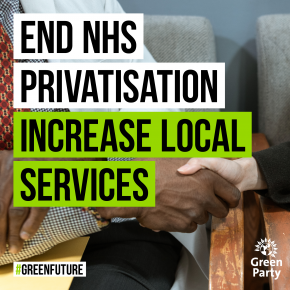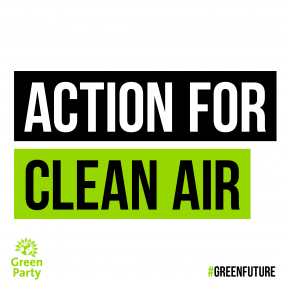CAN WE HAVE YOUR ATTENTION PLEASE?!
by Dr Angela Wilson
(based upon an article originally published in the Hanborough Herald
https://hanboroughcommunity.co.uk/HHerald/No_433_Febuary_2021.pdf )
During the lockdowns more and more time is being spent online in order to maintain social connections, find entertainment, search for news and shop. The internet has undoubtedly facilitated some remarkable progress, innovations and increased quality of life for many.
However, in the words of Greek philosopher Sophocles, “Nothing vast enters the life of mortals without a curse.”
The Social Dilemma is a documentary, released recently, that dramatically highlights the increasing concerns about how tech giants and social media (SM) platforms can negatively impact our lives. The good news is that it also provides ideas for reducing this risk to ourselves, our families and society.
In the film, high level tech insiders provide their experiences of working within a system that they became increasingly uncomfortable being part of. Through a mixture of personal reflection and dramatization, this powerful film shows how companies hoard and use our data in order to better understand and manipulate our behaviour.
Critics of the film suggest that it is too simplistic and negative. Participants make it clear that SM is not all inherently bad. What is bad is the pursuit of immense profits through a business model that is not paid for by its users (us), but instead uses us as the product to (often hidden) third parties. This has led to SM being used in ways that it was not initially designed for, and these practices are harming us. We can and should learn from the film.
The Issues:
- SM use is addictive and is designed to expose you to as much advertising as possible, as this is how the companies get their revenue. Algorithms rule SM, and artificial intelligence (AI) is working hard in the background analysing your data and usage in order to manipulate both your conscious and subconscious mind. Each interaction with SM releases a happy hormone called dopamine in the reward centre of your brain. It is the same chemical that is released if we eat sweets, take drugs like heroin or drink alcohol. Youtube has said that Netflix is not its main competitor—sleep is. They need us to be online as much as possible to simply function as a business.
- It is difficult to tell truth from lies—your results from an internet search will be different from others’ depending on your past internet usage and geographic location. We tend to live in online echo-chambers and so are no longer getting as balanced views as we could. We are being given the information the computer programmes have calculated we want to read—or that they need us to read in order to gain revenue from third parties—given the information they have about us. There is evidence that false news spreads six times faster than the truth. The Democratic system as we know it is at risk due to targeted political advertising, which can be funded opaquely. For example, Russia did not hack Facebook to influence the US election, it simply used it to advertise to targeted voters.
- The use of SM has proven to negatively impact our mental health, most notably in teenagers. Interactions on the internet provide a temporary source of pleasure but cannot replace the more complex interactions we get from direct contact with others. The ‘Like’ button on Facebook was meant to provide positive feedback, but more often, a lack of responses to a post can leave us feeling vacant and depressed.
The Solutions
Some suggestions:
- Educate yourself and others and know that you are not alone. Be aware of what is happening when you interact with a website or advert.
- Turn off notifications except for the necessary ones
- Delete apps that you are not using, and refrain from downloading apps you may not want or need, as they take your information when they are downloaded
- Have no phone at the dinner table
- Have no electronic devices in the bedroom
- Negotiate set amounts of SM time with family members and stick with that
- Do not allow children to have SM accounts until they reach the appropriate legal age. Consider delaying the purchase of smartphones until they are at least at secondary school. Many tech insiders do not allow their children to have SM accounts at all. Most notably Steve Jobs and Bill Gates severely limited their children’s use of Technology.
- Consider practising mindfulness or meditation instead.
- Try to like or follow people with different views to yours and fact check before sharing stories.
- Use multiple sources for news and be aware that many stories are designed to cause strong emotional reactions which means we do no longer think so objectively about the issues.
- Use a search engine like Ecosia that is sustainable and has less advertising or one that is not storing search histories such as Qwant, Duckduckgo or Epicsearch.
- Talk about the issues and demand better regulation of tech. Mike Berners Lee the British coinventor of the internet is concerned about how the internet is being used by big companies but thinks it is not too late to ensure it becomes something that serves humanity and not vice versa.
Tech giants have become the richest companies in the history of humanity. They purport to be providing you with a free service but in the words of the film, “If you are not paying for the product, then you’re the product.” We owe it to ourselves and society to be aware of how big tech works and be mindful of how our attention may be being manipulated.
Ultimately, it is the business model of the tech companies that needs to change. Instead of it feeding off of its users (the drug industry is the only other industry that calls its “customers” users) by allowing third parties to manipulate them, it needs to turn its users into customers. So, much like we do with Netflix and Spotify, we may need to start paying for these services to regain our rights and dignity as consumers.
The Social Dilemma is one of the most important films of the year. Alongside David Attenborough’s documentaries, it demonstrates the need for us to have insight into the effects our human inventions and activities are having on the planet and our mental and physical health.
As we recover from the COVID pandemic, we will need to think globally but live more locally. Let’s use SM, not let it use us, and then when we’ve had our allocated time online, why not switch off the screen, connect with each other face to face and reconnect with nature?
The film’s website:
https://www.netflix.com/gb/title/81254224
For further information, support and ways to take action:
For concerned parents:












Make A Comment
Comments (1)
I like the ECOSIA search engine - they seem to be funding lots of projects around the world rather than lining their pockets with profits.